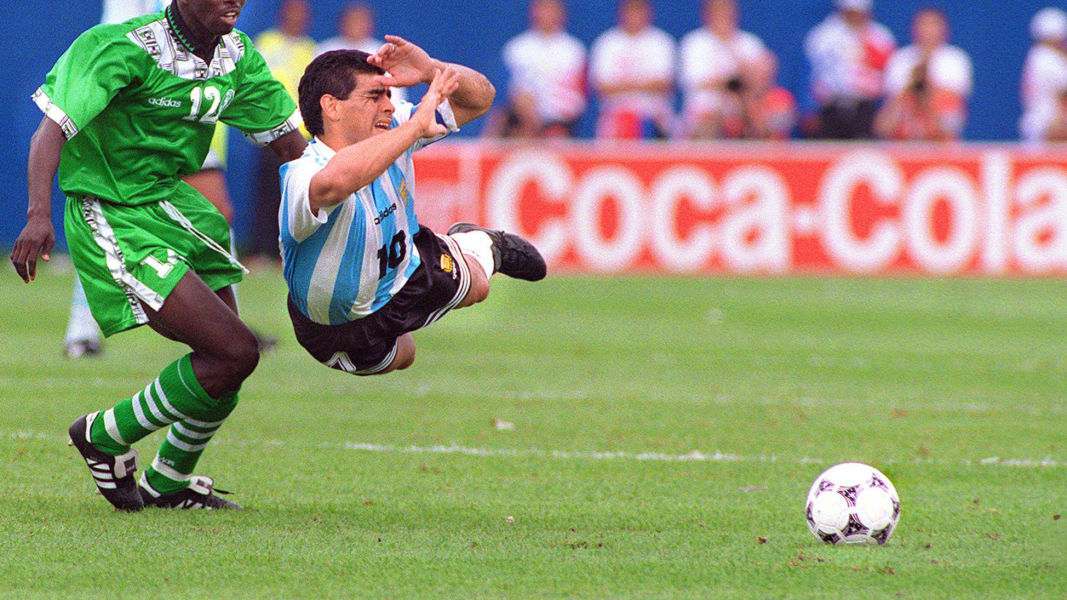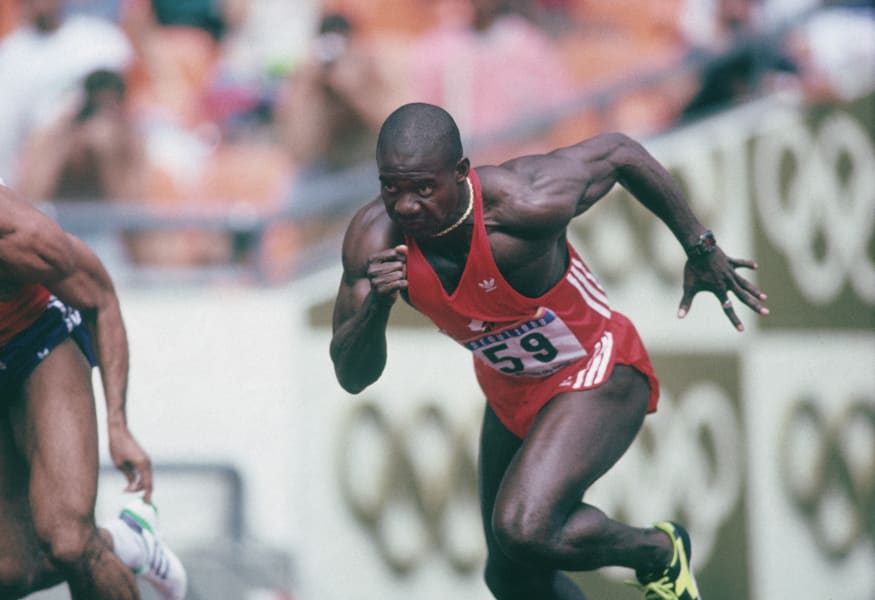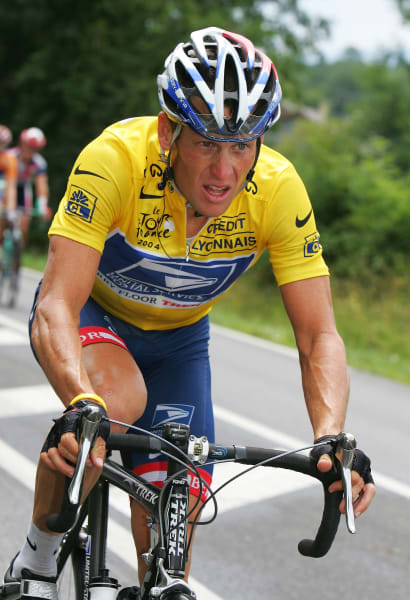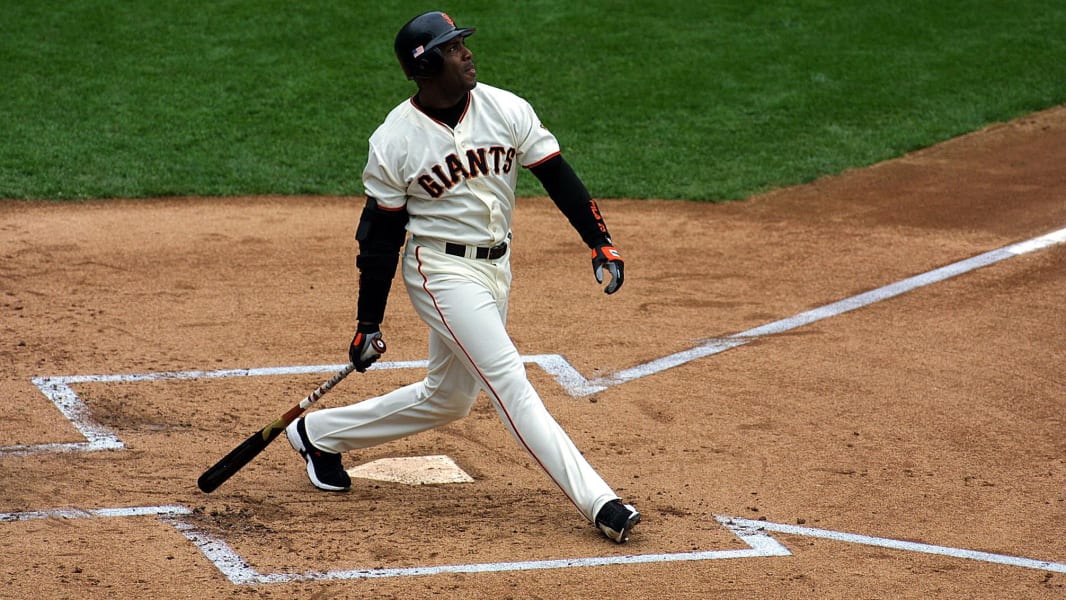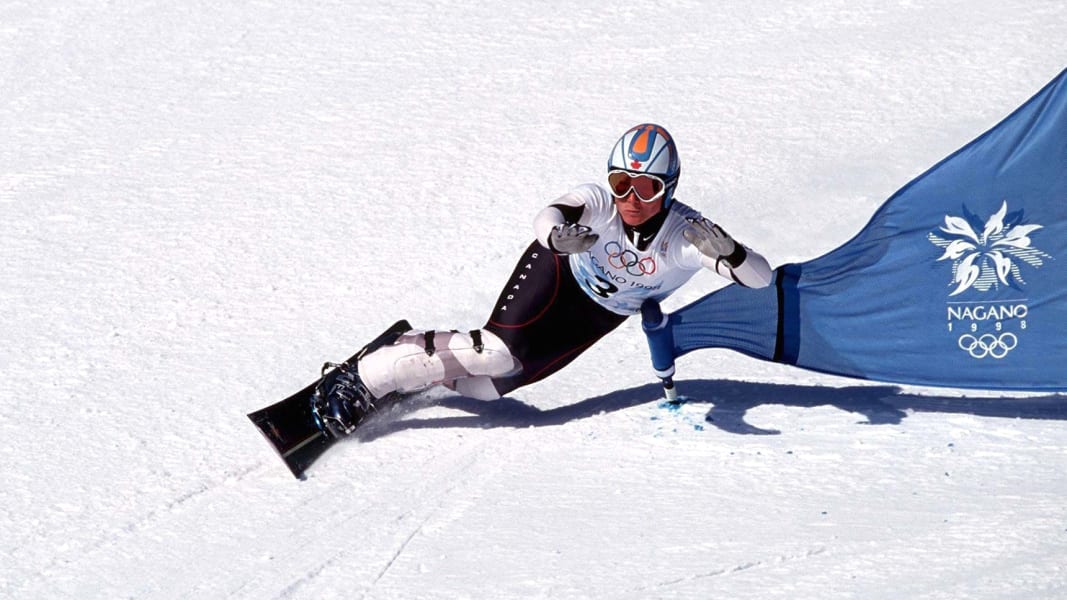Share
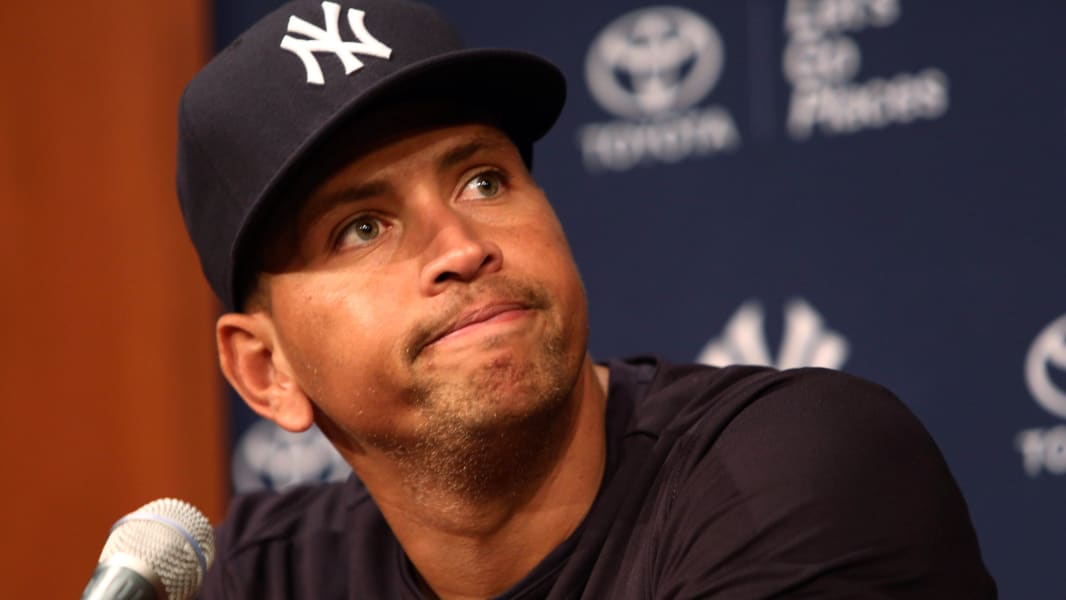

1 of 20
New York Yankees star Alex Rodriguez was suspended in August 2013 after he was accused of having ties to Biogenesis, a now-defunct anti-aging clinic, and taking performance-enhancing drugs. The suspension covers 211 regular-season games through the 2014 season. Rodriguez denied the accusations and said he intends to appeal. Twelve other Major League Baseball players received 50-game suspensions without pay in the Biogenesis probe, and In July, Milwaukee Brewers star outfielder Ryan Braun was suspended for the rest of the season for violating the league's drug policy. Charles Cherney/AP
Lance Armstong was stripped of his seven Tour de France titles and banned from professional cycling in October 2012 after being accused of using performance-enhancing drugs. Armstrong confessed in January 2013 to doping during his cycling career. Getty Images/File
Barry Bonds is baseball's all-time home run leader, but some commentators say there should be an asterisk by his record. Though he's said he never knowingly used steroids, two San Francisco reporters wrote a book alleging he used performance-enhancing drugs. He was indicted on charges of perjury and obstructing justice for allegedly lying to a grand jury investigating steroids, and convicted of obstruction of justice. AFP/Getty Images
Lyle Alzado was known as one of the most vicious lineman to ever play the game, and he chalked up more than 100 sacks and almost 1,000 tackles. Before his death from brain cancer at age 43, he told Sports Illustrated he began using steroids in 1969 and that, "On some teams between 75 and 90% of all athletes use steroids." Getty Images
Known as "Rocket" for his aggressive pitching style, Roger Clemens played pro ball for more than two decades, racking up seven Cy Youngs. He left Major League Baseball under a cloud of steroid allegations, despite a court finding him not guilty of perjury when he told Congress he never used the drugs. Allsport/Getty Images
At 6-foot-5 and 260 pounds, Alistair Overeem is known for putting mixed martial arts star Brock Lesnar into early retirement. Ahead of a heavyweight title match against UFC champion Junior dos Santos in May, Overeem tested positive for elevated levels of testosterone and was yanked from the card. Getty Images
An early and chief accuser of Armstrong, Floyd Landis was himself stripped of his 2006 Tour de France title after testing positive for performance-enhancing drugs. He admitted doping in 2010, the same year he accused many other riders of doping as well. AFP/Getty Images
As the most decorated Olympian ever, with 22 medals, Michael Phelps is known as a fish in human's clothing, but for a brief period in 2009, after a photo of him smoking a bong was made public, he also was known as a pothead. Despite losing sponsors, he quickly became known for swimming again, securing six medals in the 2012 Games. AFP/Getty Images
Marion Jones was a world champion track and field athlete who won several titles in the 1990s and five medals during the 2000 Olympic Games in Sydney, Australia. After admitting in 2007 that she had taken performance-enhancing drugs, she was stripped of the gold medals and other honors won after the 2000 Games. Allsport/Getty Images
Known as "Lights Out" after knocking out four players in a high school game, Shawne Merriman entered the NFL with fanfare, earning 2005 Rookie of the Year honors. His 2006 suspension for steroid use prompted the "Merriman Rule," prohibiting any player who tests positive for steroids from going to the Pro Bowl that year. Getty Images
After his former Texas Rangers teammate Jose Canseco accused him of using steroids, Rafael Palmeiro appeared before Congress to deny the allegations. Later that year, he was suspended from baseball for testing positive for steroids. He maintains to this day he has never knowingly taken performance enhancers. Getty Images
Few NBA players have tested positive for steroids, not only because the sport relies less on raw strength and speed than other sports but also because the league didn't begin testing until 1999. Miami Heat forward Don MacLean became the first to fail a test in 2000, and he was suspended for five games. AFP/Getty Images
After racking up awards in college football, Ricky Williams was picked in the first round of the pro football draft in 1999. After testing positive for marijuana in 2004 as a Miami Dolphin, Williams retired and studied holistic medicine in California. He returned to the Dolphins the following year, only to have more run-ins with the NFL drug policy. He retired again in 2011. Getty Images
Bill Romanowski was known for hard hits on the gridiron, but he also violently attacked teammate Marcus Williams during a scrimmage while playing for the Oakland Raiders. In a lawsuit, Williams blamed the attack on Romanowski's "roid rage." Romanowski settled the suit and in 2005 admitted to "60 Minutes" that he used steroids. Getty Images
Sprinter Tim Montgomery set the world record in the 100-meter dash in 2002, but the time was scratched after he was found to have used performance-enhancing drugs. Since his retirement, he has had other legal troubles including arrests for money laundering and heroin offenses. He was sentenced to jail time for both. Getty Images
An Olympian and renowned longball hitter, Mark McGwire spent his entire career with the Oakland A's and St. Louis Cardinals, breaking the single-season home run record in 1998. In 2010, he admitted using steroids over the course of a decade but told Bob Costas in an interview he took them only for health reasons. AFP/Getty Images
Ross Rebagliati won a gold medal during the first year of snowboarding at the 1988 Olympics. He was stripped of the medal after testing positive for the active ingredient in marijuana. It became fodder for late-night talk show jokes, but Rebagliati eventually got his medal back after it was determined marijuana was not a banned substance. Getty Images
A winner of eight Grand Slam events, Andre Agassi was considered one of the most dominant tennis players of the 1990s. In 2009, the tennis pro acknowledged in his autobiography that he had failed a drug test for methamphetamine in 1997 but skirted punishment by blaming an assistant. Allsport/Getty Images
Regarded as the best soccer player after Pele, Diego Maradona was known for his deft footwork and knack for finding the net. In 1991, he was suspended for 15 months after testing positive for cocaine. He would later admit he was addicted to the drug for about 20 years and began using when he was playing for Barcelona in the 1980s. AFP/Getty Images
A prolific sprinter in the 1980s, Canadian Ben Johnson routinely bested American Carl Lewis in the 100-meter dash. After winning the gold at Seoul in 1988, Johnson tested positive for a steroid. His coach said Johnson took the drugs to keep up with other athletes and later wrote a book saying all top athletes were using in those days. Getty Images

